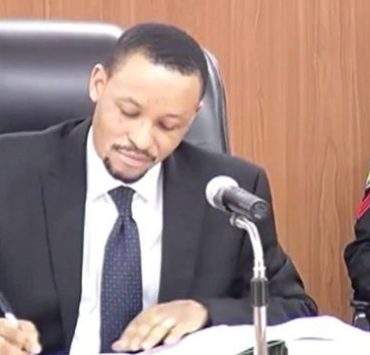House Approves Bill Seeking To Raise Appeal Court Justice By 60

Chukwudi Onyewuchi is a graduate of Geology from Obafemi Awolowo…
The House of Representatives has approved a bill seeking to make each division of the Court of Appeal have a minimum of six justices per time, for effective justice delivery.
The amendment will consequently raise the number of justices from the current 90 to a minimum of 150.
At the plenary on Tuesday, the House passed for second reading, the Court of Appeal Act 2004 (Amendment) Bill, sponsored by Chairman of the House Committee on Judiciary, Mr Onofiok Luke.
The legislation is titled ‘A Bill to Amend the Court of Appeal Act, Cap. C36, Laws of the Federation of Nigeria, 2004, to Increase the Number of Justices of the Court and Provide for Appointment of a Minimum of Six Justices in every Judicial Division of the Court for Speedy and Efficient Justice Delivery and to Improve Citizens’ Access to Justice.’
According to Luke, the bill seeks to expedite justice dispensation and broaden citizens’ access to justice by increasing the number of justices in the Court of Appeal in line with current realities.
The lawmaker, who noted that the Court of Appeal is the intermediate court between the High Court – including other subordinate courts and tribunals – and the Supreme Court, was established in 1976 with only three judicial divisions.
He also noted that the divisions of the appellate court have now grown to 20, some of which were commissioned in 2020.
Luke said, “The law perches the maximum number of justices of the court at 90. This number has become inadequate, given the recent creation of the new divisions of the court – Kano, Gombe, Awka, Asaba, etc.
“There is a high increase in the volumes of cases attended to by the court, which of course has necessitated the creation of the new divisions. This implies increased workload with fewer hands, which therefore affects quick justice dispensation at the appellate level.
“Furthermore, most of the divisions of the court do not have up to six justices, implying that two panels of the court cannot sit simultaneously to attend to cases, which therefore stall expeditious and timeous hearing and disposition of cases.”
He added, “As a matter of fact, judicial divisions of the court with a huge volume of cases like Abuja and Lagos ought to have a minimum of nine justices so that the divisions can have three panels sitting simultaneously.
“It is necessary to note that it is this same inadequate pool of justices of the Court of Appeal that are drawn to sit in Election Appeal Tribunals, thereby compounding delay in justice delivery.
“Owing to the inadequate number of justices in the court, cases stay in the docket for undesirable long periods of time.”
The bill is seeking to amend Section 1 of the Principal Act to increase the number of the justices of the court from 90 to a minimum of 150 justices “in line with current realities.”
Section 1 of the Act would further be amended by inserting a new Subsection 2 to give the power to the President of the Court to create new divisions of the court as the situation dictates.
“It is worthy to note that though the President of the Court has been creating various judicial divisions, the power to do so was not expressly given to the President,” Luke stated.
Furthermore, a new Subsection 3 would be inserted into Section 1 of the Act to provide for a minimum of six justices in judicial divisions of the court in order to accelerate hearing and determination of cases.
Chukwudi Onyewuchi is a graduate of Geology from Obafemi Awolowo University. He enjoys writing and is passionate about what he does. Hence, he always puts in all of his efforts towards attaining good results and sharing stories that will impact readers and the world at large.













